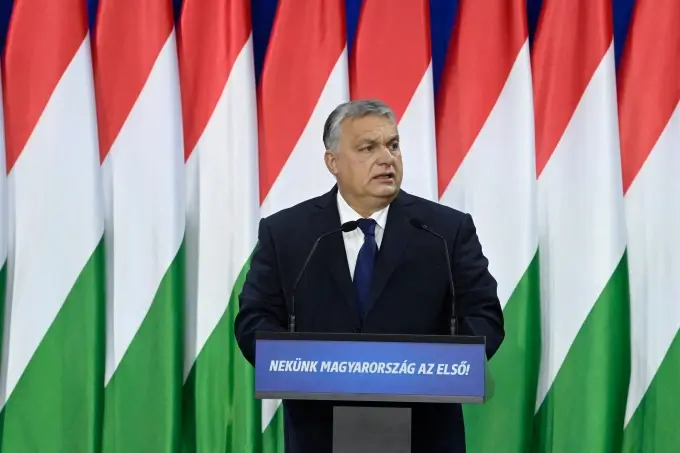Hungary’s Prime Minister Viktor Orban Vows to Block Ukraine’s EU Membership
Hungary’s Prime Minister Viktor Orban has strongly opposed Ukraine’s potential membership in the European Union (EU), declaring that he will "do everything" in his power to prevent it.

In a Facebook post on June 3, Orban described the idea of EU expansion as a "noble cause," but criticized officials in Brussels for pushing Ukraine’s accession to the EU.
Key Points from Orban’s Statement:
- Orban’s Concerns: He argued that Ukraine’s EU membership would harm Hungary’s interests and have negative economic consequences for Europe.
- Financial Impact: Orban claimed that Ukraine’s membership would drain resources from EU countries, citing how it could take away funds meant to support European families, farmers, and industries.
- Hungary’s Role: As a EU member state, Hungary has the power to veto any decision related to new EU member states, and Orban made it clear that he would not allow Ukraine’s membership under his leadership.
Ukraine’s EU Membership Bid
- Ukraine's Application: Ukraine submitted its application for EU membership in 2022, and negotiations are expected to begin in** June 2024**. EU officials have set a goal for Ukraine to join by 2030.
- EU's Challenge: Despite this goal, Hungary’s veto power remains a significant hurdle. EU foreign committee leader Kaja Kallas suggested that alternative paths could be explored if Hungary blocks Ukraine’s membership, but no concrete plans have been revealed yet.
Orban’s Broader Political Stance
Orban is known for his pro-Russia stance and has repeatedly called for limited Western intervention in the Ukraine conflict. He has also opposed Ukraine’s NATO membership, fearing the long-term geopolitical consequences for Europe.
What’s Next?
- Ukraine’s EU Future: Orban’s veto powers could significantly delay Ukraine’s EU ambitions, and the path forward will depend on how the EU handles Hungary’s opposition.
- The Larger Debate: Orban’s comments highlight the growing divisions within Europe regarding how to handle the geopolitical fallout from the Ukraine conflict and Russia’s role.
This development adds another layer to the ongoing debate over Ukraine’s future in Europe. With Hungary’s strong objections, it remains to be seen how the EU will manage the differing opinions of its member states.
What Are Your Thoughts?
Do you agree with Orban’s stance on Ukraine’s EU membership? Or do you think Ukraine should be allowed to join despite the challenges? Feel free to share your views!